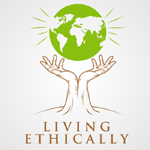This month’s article is by Paul Wolfenden from The Fair Trade Store
Often a confusing topic, I try to explain below the intricacies involved when answering this question…
1. What is Fair Trade?
“Fair Trade” is a global, economic development platform that integrates business, consumer and producer relationships that are governed by the Charter of Fair Trade Principles – authorised by the World Fair Trade Organization.
“Fair Trade” in this sense, delivers market access for producers, direct investment opportunities for businesses and consumers and a sustainable social and environmental management system for trading.
“Fair Traders” themselves (like myself!) are driven to meet the needs of marginalised artisans and producers who often organise themselves into cooperatives and groups to supply consumer products and services to generate income, to lift themselves out of poverty, to create a sustainable local economy.
So it`s about Fair Traders working to commonly accepted principles.
“Fair trade” expresses a rather wider vision of development, covering a much wider range of products than can be “certified” (see below) and embracing campaigning and awareness-raising activity.
I hope everything is clear so far. Please keep with it……
2. What is Fairtrade?
“Fairtrade” is about better prices, decent working conditions, local sustainability, and fair terms of trade for farmers and workers in the developing world.
By requiring companies to pay sustainable prices (which must never fall lower than the market price), “Fairtrade” addresses the injustices of conventional trade, which traditionally discriminates against the poorest, weakest producers.
It enables them to improve their position and have more control over their lives.
“Fairtrade” is a strategy for poverty alleviation and sustainable development.
Its purpose is to create opportunities for producers and workers who have been economically disadvantaged or marginalised by the conventional trading system.
And here`s the main difference from 1. above…
“Fairtrade” is a trademarked labelling initiative, owned and implemented by the Fairtrade Labelling Organisation (FLO).
The Fairtrade Mark or logo certifies that a product meets agreed Fair Trade criteria for a product. The label does not apply to an organisation, it only applies to the particular product on which it is displayed.
What is The Fairtrade Foundation?
The Fairtrade Foundation is a development organisation committed to tackling poverty and injustice through trade and the UK member of Fairtrade Labelling Organisations International (FLO).
The Foundation works with businesses, civil society organisations and individuals to improve the position of producer organisations in the South and to help them achieve sustainable improvements for their members and their communities.
Here in the UK, the Fairtrade Foundation was established in 1992, with the first products to carry the FAIRTRADE Mark launched in 1994.
What is The Fairtrade Mark?
The FAIRTRADE Mark is an independent consumer label which appears on UK products as a guarantee that they have been certified against internationally agreed Fairtrade standards.
It shares internationally recognised Fairtrade standards with initiatives in 20 other countries, working together globally with producer networks as Fairtrade Labelling Organisations International (FLO).
The Mark indicates that the product has been certified to give a better deal to the producers involved – it does not act as an endorsement of an entire company’s business practices.
Who is Fairtrade Labelling Organisations International (FLO)?
The international body comprising the Fairtrade Foundation and its partner organisations around the world which has overall responsibility for developing Fairtrade standards, supporting producers, and operating global certification and auditing systems.
Complicated stuff, perhaps, but I hope you now have a much clearer understanding of what exactly is meant by the terms “Fair Trade” and “Fairtrade”.
© Living Ethically / The Fair Trade Store February 2012
